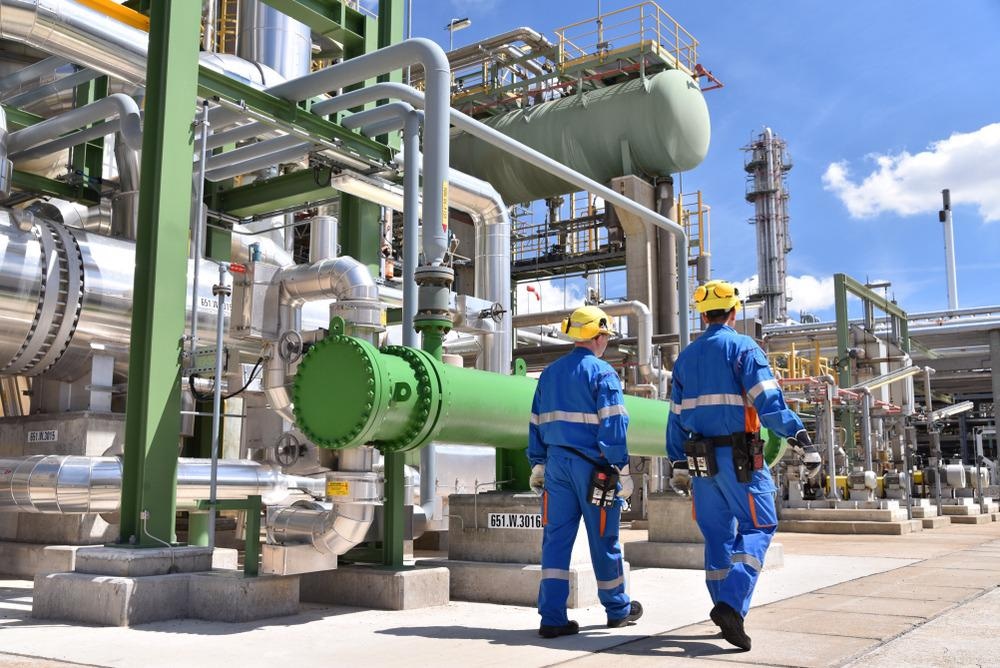AZoM spoke to David Anderson, a director at Score Diagnostics Ltd, about the role valve maintenance and diagnostics play in efforts to reduce emissions in the chemical industry and make industry as a whole greener.
Please can you introduce yourself and your professional background within valve diagnostics, as well as your current role at Score Group?
I am David Anderson, a Director at Score Diagnostics Limited, the Score Group company that is focused on valve condition and performance monitoring and diagnostics. I have worked in the valve industry throughout my 38-year career, 28 of which have been within the Score Group. I have been involved in Valve Diagnostics for over 20 years fulfilling various roles.
I am currently focused on the roll-out and support of our unique valve condition and performance monitoring equipment/systems/technologies, as well as our Emissions Elimination Program, to our customers worldwide.
Score Group is a global company specializing in valves, fuel systems, and component manufacture. How essential are efficient valves and valve diagnostics to chemical processes?
Valves are one of the primary control elements in chemical processes / fluid flow management and they most often perform critical functions such as safety management, environmental stewardship, or impact directly on process efficiency and uptime. Knowing, in advance of any in-service failure, that a valve is likely to not be able to perform its intended function is therefore critical to achieving a safe, environmentally sustainable, and efficient process operation.
The critical valve diagnostic evidence our manufactured equipment and systems provide guides process owner/operators on what proactive and pre-emptive maintenance activities are required, to ensure no in-service failures and no unplanned/unexpected process downtime is experienced.
You will be conducting a talk on reducing emissions within the chemical industry at the 2022 ChemUK conference in May. Why is it so important that steps are taken to make this industry greener?
It is well documented that pressure is being exerted on process owners/operators to take all reasonable and responsible steps to reduce any potentially harmful impacts to the environment. This is not just coming from activists, it is coming from governing bodies and other associated authorities. In taking the required steps towards optimized environmental stewardship, process industry stakeholders will ensure their business operations remain sustainable moving forward.
Whilst some of the pressure is coming in the form of prescriptive compliance requirements, it should be further highlighted that the potential gains available from optimized valve management will deliver very attractive benefits to owner/operator organizations too. It should therefore be our primary focus to accelerate the uptake of innovation and technologies that deliver these operational outcomes and benefits. The outcome of these positive actions will automatically make operations greener.
Sign Up and Claim Your Free Visitor Badge For ChemUK 2022 Here
As well as mitigating the effects of climate change, what are some of the other positive benefits that can be associated with emissions reduction?
As mentioned above, there are many motivations for process owners/operators to get involved in reducing emissions (or as we would prefer to focus on, eliminating emissions). I have previously published guidance for process owners/operators on the following positive outcomes that can be delivered by in-line condition and performance monitoring of valves:
- Minimize Risks and Improve Process Safety
- Minimize Risks and Improve Personnel Safety
- Maximize Process Efficiency
- Minimize (Avoid) Production Losses
- Maximize Process Operating Profits
- Improve ESG Reputation
Since these are all key performance indicators and highly desirable business objectives for our customers, they can also be identified as strong drivers for change and for the rapid adoption of any technologies that deliver these outcomes.
What role does the condition of valves and other assets play in emission reduction strategies?
According to a UK government report, industry represents nearly a quarter of UK emissions. Within process industries, Valves have been identified as the biggest source of emissions - whether these be through-valve leaks (leading to vents and flares) or fugitive emissions (from gland packings, joints, etc.). Based on independently published research, around 75% of process emissions are being released from valves and adjoining pipework.
Valves are therefore the primary (although not the only) target in our strategic Emissions Elimination Program. When valves are installed and functioning correctly, emissions are significantly lower. We must therefore put our collective efforts into optimizing valve performance management, to ensure the maximum reductions in emissions are achieved, in the shortest possible timescale.

Image Credit: industryviews/Shutterstock.com
Within your talk at ChemUK, you will cover the four critical elements of effective emissions elimination—could you briefly outline what these four elements are?
The four key steps of our Emissions Elimination Program will be clearly identified as :-
- Survey; Finding the valves that are not performing as required within the process (the leakers!). We also have the ability to monitor valve conditions and performance over time.
- Analyze; A detailed review and interpretation of the survey findings, which evidence and prioritize the required repair and maintenance activities
- Reduce; Mitigating leaks in the first instance through temporary or permanent repairs, which may also include recommending design modifications or different materials supported by our extensive valve engineering capability.
- Eliminate; Ensure the principles of continuous improvement are applied to improve valve performance and expected life cycles moving forward
These follow the basic principles of Intelligent Valve Management™ practices and are fully aligned with what we have learned and implemented at Score Group over the last 40 years.
What more can listeners expect from your talk in May?
We will be describing some of the leak detection, quantification, and valve repair technologies we deploy, and the benefits we have delivered to our customers in the case studies section of the presentation. Focusing on the key performance indicators that most chemical companies will already be measuring and then showing how these can be improved is the key to accelerating the adoption of the technologies that support emissions reduction efforts. The “return on investment” models are compelling.
Overall, how achievable do you believe net zero emissions targets are within the chemical industry?
I do believe that net-zero emissions are an achievable target. Now that much of the correct investment has started, it is somewhat inevitable that emissions from process industries will reduce over time. As scope 1, 2, and 3 emissions come clearly into everyone’s focus and become better understood and measured, there will be an increasing appetite and ownership among process owners/operators to address these and achieve the lowest possible operating emissions.
This transition will inevitably then move the reduction targets which are set, just as we have seen in the USA market, where compliance standards have become increasingly stringent over time. By working together, all stakeholders can achieve the best possible outcomes – this may even take us to a position beyond today’s simple “net zero” aspirations.
After the halt of many in-person conferences due to the ongoing COVID-19 pandemic, how important are conferences like ChemUK for encouraging collaborative efforts to make industries greener?
Given that it takes all of us working together to fix the biggest problems, we need these collective and collaborative events - like Chem UK - which allow innovators and entrepreneurs to share creative solutions and energize the market to make the positive changes required, to ensure our industry remains sustainable for many years to come. Simply repeating what we have done in the past is not sustainable.

About David Anderson
 In my global role as a champion of MIDAS® Valve Diagnostics products and services, I am proud to have directly contributed to reducing emissions in more than 30 countries, through the deployment of our unique valve condition and performance monitoring equipment and systems such as MIDAS Meter®, MIDAS® Sensor, V-MAP® and V-MAP® Portable. Full details for these Score Group products and our wider Emissions Elimination Program can be found at our website www.midasvalvediagnostics.com or www.score-group.com. Alternatively, we would be delighted to welcome you to our exhibition stand at Chem UK – You will find us on stand number C20. Come and have a chat about how we can directly help you.
In my global role as a champion of MIDAS® Valve Diagnostics products and services, I am proud to have directly contributed to reducing emissions in more than 30 countries, through the deployment of our unique valve condition and performance monitoring equipment and systems such as MIDAS Meter®, MIDAS® Sensor, V-MAP® and V-MAP® Portable. Full details for these Score Group products and our wider Emissions Elimination Program can be found at our website www.midasvalvediagnostics.com or www.score-group.com. Alternatively, we would be delighted to welcome you to our exhibition stand at Chem UK – You will find us on stand number C20. Come and have a chat about how we can directly help you.
Please also feel free to connect with me on LinkedIn, at David Anderson, FIoD (Dip), CQP, MCQI, MIAM | LinkedIn
Disclaimer: The views expressed here are those of the interviewee and do not necessarily represent the views of AZoM.com Limited (T/A) AZoNetwork, the owner and operator of this website. This disclaimer forms part of the Terms and Conditions of use of this website.